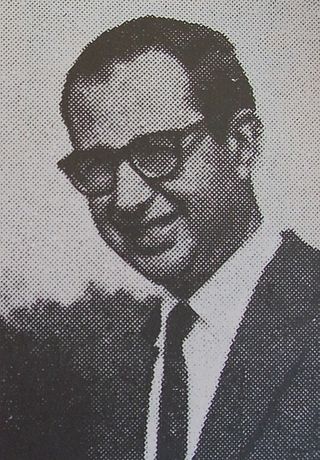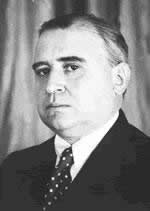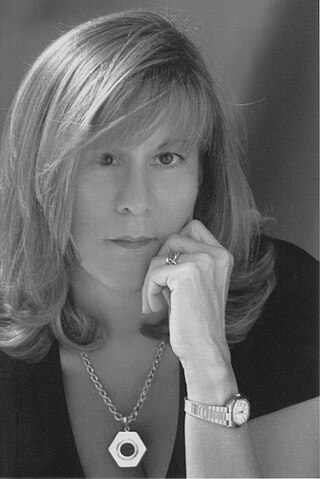Related Research Articles

Adolfo Bioy Casares was an Argentine fiction writer, journalist, diarist, and translator. He was a friend and frequent collaborator with his fellow countryman Jorge Luis Borges. He is the author of the Fantastique novel The Invention of Morel.

Augusto Roa Bastos was a Paraguayan novelist and short story writer. As a teenager he fought in the Chaco War between Paraguay and Bolivia, and he later worked as a journalist, screenwriter and professor. He is best known for his complex novel Yo el Supremo and for winning the Premio Miguel de Cervantes in 1989, Spanish literature's most prestigious prize. Yo el Supremo explores the dictations and inner thoughts of José Gaspar Rodríguez de Francia, the eccentric dictator of Paraguay who ruled with an iron fist, from 1814 until his death in 1840.

Argentine literature, i.e. the set of literary works produced by writers who originated from Argentina, is one of the most prolific, relevant and influential in the whole Spanish speaking world, with renowned writers such as Jorge Luis Borges, Julio Cortázar, Leopoldo Lugones and Ernesto Sábato.

César Aira is an Argentinian writer and translator, and an exponent of contemporary Argentinian literature. Aira has published over a hundred short books of stories, novels and essays. In fact, at least since 1993, a hallmark of his work is a truly frenetic level of writing and publication—two to five novella-length books each year. He has lectured at the University of Buenos Aires, on Copi and Arthur Rimbaud, and at the University of Rosario on Constructivism and Stéphane Mallarmé, and has translated and edited books from France, England, Italy, Brazil, Spain, Mexico, and Venezuela.

Juan Gelman was an Argentine poet. He published more than twenty books of poetry between 1956 and his death in early 2014. He was a naturalized citizen of Mexico, country where he arrived as a political exile of the Military Junta.

Alejandro Rodríguez Álvarez, known as Alejandro Casona was a Spanish poet and playwright born in Besullo, Spain, a member of the Generation of '27. Casona received his bachelor's degree in Gijon and later studied at the University of Murcia. After Franco's rise in 1936, he was forced, like many Spanish intellectuals, to leave Spain. He lived in Buenos Aires, Argentina until April 1962, when he definitively returned to Spain.

Guillermo de Torre Ballesteros was a Spanish essayist, poet and literary critic, a Dadaist and member of the Generation of '27. He is also notable as the brother-in-law of the Argentine writer Jorge Luis Borges.

Noé Jitrik was an Argentine literary critic.

Alicia Kozameh is an Argentine novelist, short story writer and poet, and Professor in the Creative Writing Program, Department of English, at Chapman University in Southern California. Kozameh has published seven novels, a collection of short stories and six books of poetry. She has also edited two anthologies and wrote a book in collaboration with other authors, former political prisoners from the last Argentine military dictatorship in her country.
Hérib Campos Cervera (1905-1953) was a Paraguayan poet and writer.
Eloy Fariña Núñez was a Paraguayan writer. Born in the small town of Humaitá, he moved to neighboring Argentina as a boy and lived there until his death at 43. His works, such as the poem Canto Secular, often deal with Paraguayan themes and he remains an important figure in early 20th century Paraguayan literature.

Ricardo Ernesto Montes i Bradley, poet, essayist, art historian, and literary critic and diplomat born on June 9, 1905, in Rosario, Argentina. He was Honorary Consul of México in Rosario, professor of Fine Arts, publisher, columnist and contributor in newspapers and literary magazines in Latin America. R-E Montes i Bradley held Doctorates in the Law, Diplomacy, History and International Law. He was an active member of the International Institute of Ibero-American Literature and the International Association of Critics; Correspondent Member of the National Academy of Arts and Literature of Cuba and of the National Academy of History and Geography of Mexico; Honorary Member of the Mexican Academy of Genealogy and Heraldry ; member of the Sociedad Argentina de Escritores (SADE); a member of the Círculo de la Prensa and the Colegio de Abogados de la Ciudad de Rosario; co-founded the Escuela de Bellas Artes de Rosario; member of the Asociación de Críticos de México. As publisher, he was responsible for the Boletín de Cultura Intelectual, which he also directed; the art magazines Revista Paraná and Cuadernos del Litoral were also the result of his commitment to journalism in the arts. The last two publications were dedicated to promote the works of local artist, writers, poets in the region known as Paraná, Rosario de Santa Fe and vicinity.
Alejandro Guanes was born in Asunción, Paraguay, November 28, 1872. He was son of Francisco Guanes and Matilde Recalde.

Sergio Olguín is an Argentine author, journalist and literary critic born on 29 January 1967 in Buenos Aires. Whereas most of the novels that he has published to date can be categorised as youth literature, he has also published stories and novels that do not fall in this category.

Natalio Félix Botana Miralles, was an Uruguayan journalist and entrepreneur who founded the Argentine newspaper Crítica in 1913. Published until 1962, Crítica was the most widely circulated newspaper in Latin America.

María Esther de Miguel was an Argentinian writer.

Lourdes Espinola is a Paraguayan poet, diplomat, cultural promoter, and literary critic. Daughter of the laureate Paraguayan writer and philosopher Elsa Wiezell, Espinola's academic background includes the fields of health sciences, international relations, as well as philology and literature, at universities of the United States and Europe.

Patricio Pron is an Argentine literary writer and critic translated into a dozen languages including English, German, French and Italian. Granta magazine selected him in 2010 as one of the 22 best young writers in Spanish of his generation. He won the twenty-second Alfaguara Novel Prize in 2019 for his work Mañana tendremos otros nombres among other prizes.

Guillermo Diaz-Plaja Contestí was a Spanish literary critic, historian, essayist, and poet.
The National Prize for Literature is awarded biennially, in odd-numbered years, by the Ministry of Education and Science, to "books in the genres of poetry, narrative, essay, or theater, written in Spanish or Guaraní, by Paraguayan or foreign authors with at least five years of residence in Paraguay." It was established in 1990 by Law No. 97/90, which also created the National Prize for Science, awarded in even-numbered years. This was updated by Law No. 1149 in 1997.
References
- ↑ Romero, Elvio (1984). El sol bajo las raices, 1952-1955: vol 23 of Collecion Poesia. Texas: Alcándara.
- ↑ "Grandes exponentes literarios integrarán la mesa de jurados para el Premio Nacional de Literatura edición 2021" [Great Literary Exponents Will Make Up the Jury Table for the 2021 Edition of the National Prize for Literature] (in Spanish). Senate of Paraguay. 9 September 2021. Retrieved 12 September 2022.
- Centro Cultural de la República El Cabildo (in Spanish)
- Diccionario Biográfico Forjadores del Paraguay, Primera Edición Enero de 2000. Distribuidora Quevedo de Ediciones. Buenos Aires, Argentina. (in Spanish)